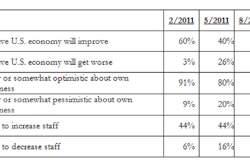POET has received final approval for a $105 million loan guarantee issued through the U.S. Department of Energy's Loan programs office. The loan guarantee and financing allows POET to construct Project LIBERTY, a 25 million-gallon-per-year cellulosic ethanol plant in Emmetsburg, IA.
In an announcement made earlier, U.S. Energy Secretary Steven Chu said America is in a race to develop clean renewable energy sources to compete in a global clean energy market with countries like China.
"Investments in the next generation of biofuels and plants like Project LIBERTY are critical to those efforts," says Secretary Chu. "This commercial-scale biofuel plant will reduce carbon emissions and create new, green American jobs that will help strengthen the nation's economy."
The first commercial cellulosic ethanol plants will demonstrate that the 1 billion tons of biomass available in the United States can be a major force in overcoming the country's reliance on foreign oil, POET CEO Jeff Broin says. There is enough biomass available to allow ethanol to replace all of America's imports of gasoline.
"I'm honored that POET is able to play such an important role in expanding America's sources of clean-burning ethanol. I'm grateful that the Department of Energy, after conducting a rigorous due diligence process, agreed to support and approve this important project," Broin says. "Financing has been a key hurdle to getting the first commercial-scale cellulosic ethanol plant up and running. We're excited to show the world the tangible results of a decade of work by our researchers and engineers.
POET started construction in 2010 with a 22-acre integrated stackyard to store the biomass delivered by area farmers. Preliminary site work on the biorefinery began this fall.
Project LIBERTY will be located next to the existing grain ethanol plant, POET Biorefining - Emmetsburg, and will share roads, land and other infrastructure. Additionally, the cellulosic plant will produce biogas as a co-product, enough to completely power itself and eliminate the majority of the natural gas required to operate the adjacent grain ethanol plant.
POET has spent tens of millions of dollars over the last decade working to commercialize cellulosic ethanol, including operation of a pilot cellulosic ethanol plant in Scotland, SD. Partners in universities, government, and private industry have also played key roles in making the process both renewable and profitable.
Biomass harvesting
Last year, 85 farmers around Emmetsburg harvested 56,000 tons of biomass and delivered it to POET's 22-acre integrated stackyard.
That total will increase this year in a gradual ramp-up to the 300,000 tons of biomass Project LIBERTY will need annually by the time it starts operating.
11% emissions reduction
A third-party life cycle analysis estimated that Project LIBERTY is carbon negative: a 111% reduction in greenhouse gases.
The fact that the plant uses the residue form an existing crop and produces its own power from the waste stream are major factors in that reduction.
Soil quality considerations
Besides emissions, POET has devoted itself to monitoring soil quality through an ongoing partnership with Iowa State University and USDA. Three years of soil data indicate that for the fields studied, POET's contracted harvest rates of 1 ton of biomass per acre (approximately 20-25% of the biomass on the field) can be consistent with good soil management.
That research continues, and the data will continue to shape harvest practices in the area.
Jobs/economic development
A jobs and economic impact study commissioned by the Iowa Power Fund says Project LIBERTY could generate at least $11.8 billion, and up to $37.8 billion, in economic activity over 20 years. It also would have direct, indirect and induced job totals of 861 to 2,846.
3.5 billion gallons
POET's first priority is building its first commercial cellulosic ethanol plant. In the future, POET intends to replicate the process so that it is integrated into all the company's 27 grain-ethanol plants. Longer-term plans include licensing the technology to other ethanol producers and adapting the process. Altogether, POET will have a hand in 3.5 billion gallons of cellulosic ethanol production.



















